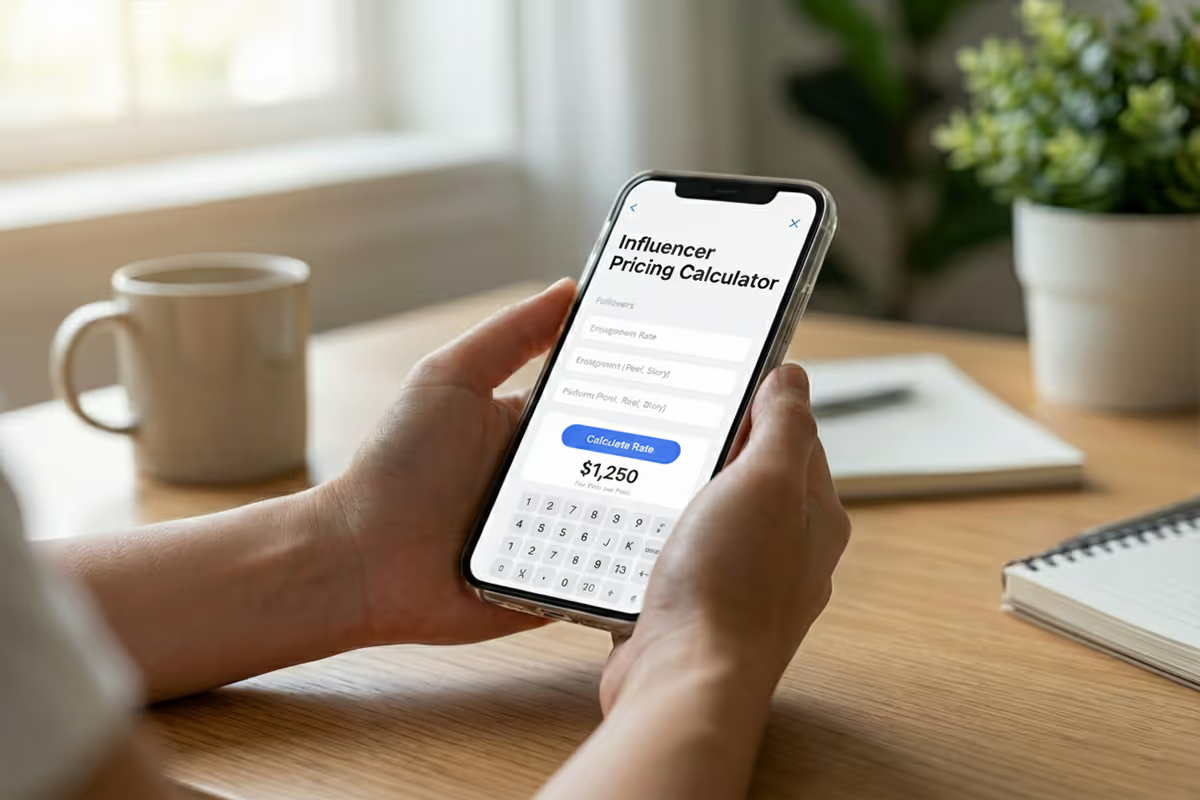%20(1).avif)
The health and wellness industry is booming, projected to reach $7 trillion by 2025. With over 2.9 billion monthly active users, Facebook offers unmatched access to potential customers for health products.
Successfully promoting health products on Facebook involves understanding platform regulations and utilizing its powerful targeting features.
If done right, Facebook marketing can drive significant growth for your health business. So, let’s jump in and analyze how it’s done!
Effective Facebook Marketing Strategies for Promoting Health Products
Learn how to leverage Facebook’s powerful tools to boost the visibility and sales of your health products, connecting with the right audience for maximum impact.
1. Building a Health-Focused Facebook Business Page
Your Facebook business page serves as your brand's hub on the platform. Optimize it specifically for health products by:
- Creating a professional profile with consistent branding
- Writing a clear "About" section highlighting your health expertise
- Including contact information and links to your website
- Publishing your business hours and location (if applicable)
- Setting up a shop section featuring your health products
A well-optimized business page builds credibility with health-conscious customers who typically research brands thoroughly before purchasing.
2. Content Marketing for Health Products
Content remains king on Facebook, particularly for health products, where educational material drives engagement.
Educational Posts
Share valuable health information related to your products:
- Ingredient spotlights explaining specific benefits
- Educational graphics about health conditions your products address
- Quick tips for incorporating products into daily routines
- Research summaries supporting your product formulations
For example, if selling turmeric supplements, create posts about inflammation, turmeric's active compounds, and cooking ideas using turmeric.
User-Generated Content
Encourage customers to share their experiences using your health products (without making specific health claims):
- Photos of customers using your products
- Lifestyle images showing your products in daily routines
- Testimonials focusing on product quality and customer experience
Pro tip: Create a branded hashtag for your health product line and offer small discounts to customers who post using it. This builds a searchable content library while generating authentic social proof.
3. Creating Compliant Facebook Ad Campaigns
Facebook ads offer powerful targeting for health products when designed within platform guidelines.
Targeting Strategies for Health Products
Focus on these targeting parameters:
- Interest-based targeting (wellness, nutrition, fitness)
- Lookalike audiences based on current customers
- Behavioral targeting (health article readers, fitness app users)
- Demographic segments interested in health optimization
Avoid targeting by specific health conditions, as this may violate Facebook policies and limit your ad reach.
Compliant Visual Content for Health Ads
Your ad visuals significantly impact both compliance and effectiveness:
- Use lifestyle imagery showing healthy, active people
- Show product packaging clearly to build recognition
- Use motion with video or carousel formats to showcase products in use
- Maintain consistent branding across all visual elements
Avoid dramatic transformation images or visuals implying medical benefits.
Ad Copy Best Practices
Write ad copy that:
- Emphasizes product quality and ingredients
- Uses statements supported by scientific evidence
- Includes social proof without specific health claims
- Contains clear calls-to-action
For example: "Formulated with premium plant extracts. Over 10,000 customers trust our daily wellness formula. Shop now to experience the difference."
Leveraging Facebook Groups for Health Product Promotion

Facebook Groups provide exceptional opportunities for promoting health products organically.
Creating a Branded Health Community
Consider building your own Facebook Group focused on the health area your products address:
- Nutrition support groups
- Fitness motivation communities
- Wellness habit builders
- Specific health interest groups (e.g., plant-based living)
These groups position your brand as an authority while creating a direct channel to engage potential customers.
Participating in Existing Health Groups
Many established health communities welcome brand participation when providing value:
- Identify relevant groups where your target audience participates
- Join as an individual (not your brand page)
- Contribute valuable information consistently before mentioning products
- When appropriate, recommend your products as solutions to specific questions
- Always disclose your affiliation with the brand
This approach builds credibility through expertise rather than interruption marketing.
Using Facebook Live for Health Product Demonstrations

Live video creates authentic connections with health-conscious audiences.
Live Demonstration Ideas
Consider these Facebook Live formats:
- Product unboxing and ingredient explanations
- Q&A sessions with health experts or formulators
- Behind-the-scenes manufacturing tours
- Preparation demonstrations (for consumable products)
- Interviews with satisfied customers (focusing on experience, not health claims)
Live sessions allow real-time interaction, addressing concerns that often prevent health product purchases.
Maximizing Live Engagement
To get the most from Facebook Live:
- Promote your live session in advance
- Prepare key talking points while keeping the format conversational
- Respond to comments in real-time
- Include special offers for live viewers
- Save and repurpose the content afterward
Live videos typically receive higher organic reach than standard posts, making them valuable for health products with educational components.
Influencer Partnerships for Health Products
The right influencer partnerships can significantly boost health product credibility.
Finding Appropriate Health Influencers
Look for partners who:
- Have audiences aligned with your target demographic
- Demonstrate knowledge about health topics
- Maintain high engagement rates (not just follower counts)
- Produce quality content consistent with your brand image
- Have a history of compliant health product promotions
Micro-influencers (10,000-50,000 followers) often provide better returns for health products than mega-influencers, as their audiences tend to be more trusting and engaged.
Compliant Influencer Collaboration Guidelines
Provide clear guidelines for influencers promoting health products:
- Provide approved language about product benefits
- Require FTC disclosure of the partnership
- Prohibit specific health claims or promised results
- Focus on personal experience rather than universal claims
- Emphasize ingredient quality and formulation benefits
Creating an influencer brief with compliant language examples helps prevent policy violations.
Facebook Shops for Health Products

Setting up a Facebook Shop creates a seamless purchasing experience for customers.
Optimizing Your Health Product Listings
For each product in your Facebook Shop:
- Use high-quality images showing the packaging and product
- Write detailed descriptions focusing on ingredients and quality
- Set competitive pricing with occasional promotions
- Include size, serving, and usage information
- Link directly to your website's product pages for additional information
The seamless integration between browsing and buying removes friction from the customer journey for health products.
Creating Shopping Ads
Once your shop is established, shopping ads become a powerful tool:
- Dynamic product ads showcase your health product catalog
- Collection ads display multiple products together
- Carousel formats allow highlighting different benefits of the same product
These ad formats perform exceptionally well for visual health products, especially when targeting previous website visitors who haven't yet purchased.
Measuring and Optimizing Facebook Health Product Campaigns
Data-driven optimization is essential for long-term Facebook marketing success.
Key Performance Indicators
Track these metrics for health product campaigns:
- Engagement rate (especially for educational content)
- Click-through rate to product pages
- Add-to-cart events
- Purchase conversion rate
- Customer acquisition cost
- Return on ad spend
For private supplement brands in particular, understanding the specific strategies for selling supplements on Facebook can further optimize your approach.
A/B Testing for Health Products
Continually test these elements:
- Ad visuals (lifestyle vs. product-focused imagery)
- Headline variations (question-based vs. statement-based)
- Call-to-action buttons (Shop Now vs. Learn More)
- Audience segments (interest-based vs. behavioral)
- Ad placements (feed vs. stories vs. right column)
Even small improvements in conversion rates can significantly impact profitability for health product campaigns.
What You Didn’t Know: The Untapped Potential of Social Listening for Health Products

Social listening goes beyond brand mentions, uncovering deeper insights into customer preferences and pain points. By tracking health-related keywords and observing conversations, you can identify emerging trends and unmet needs.
Use Facebook’s audience insights combined with third-party tools to spot shifts in sentiment or surges in interest. This allows you to quickly adapt your marketing strategy and stay ahead of customer demands.
Building Long-Term Success with Facebook Health Marketing
Promoting health products on Facebook requires a balanced approach with compliant ads, engaging content, and community building. Understand Facebook's policies, create an educational content strategy, and use advanced targeting while staying compliant. Continuously optimize based on performance data.
With the right products and strategic Facebook promotion, your health brand can achieve sustainable growth in this competitive but rewarding market.
FAQ
Related blogs

High-Low Method Calculator: Discover Your True Fixed and Variable Costs

Influencer Pricing Calculator: Find Your Fair Rate for Posts, Reels & Stories
.avif)


.avif)